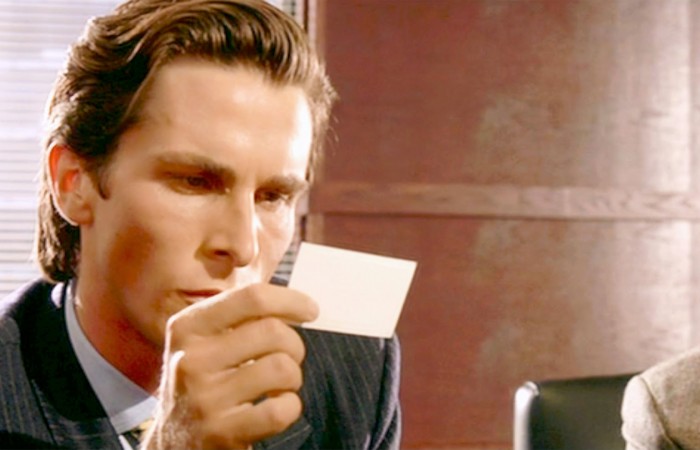
The seven square inches that say everything about you
By Ed Lynes
The less essential business cards become, the more relevant they are.
Your hands are trembling ever so slightly as you hold your business card between both hands. You are pretty sure that the card is facing toward your new acquaintance, kanji side facing up, but you can’t look up to confirm mid-bow. The card is taken from your hands and it feels like a 25-pound dumbbell has been lifted. You rise from your down and catch a glance at the impression your card has made.
The ten seconds it takes Japanese salarymen to exchange meishi (business cards) lends more significance to your business card than an entire lifetime of networking events might in America. Yet, think of the last time you were handed a business card. It was probably at the beginning of the conversation, before you knew more than your quarry’s name. The card immediately communicated more than the information on it – the texture, design, colors, logo, and even weight told a story about your new contact, and their business.
Earlier this week, a potential customer sent me a mockup of his new business cards and solicited my opinion. The card itself featured only two colors: blue and black. At first glance my eyes immediately caught the company’s logo in a heavy, seriffed, early-twentieth century font, right alongside a drawing of the company’s building. It contained all of the requisite contact information you would expect (and even featured a fax number!). It was basic, but wholly unremarkable.
That card told me a story: this was a business that had been around a long time. It came across as being established, reliable, and stable. It came across as overtly embracing those values. I felt as though it was a company where personal relationships likely mattered, and turnover was low. I also imagined everyone still using the fax machine and trying to send emails on desktops running Windows XP. In ways good and bad, that card told me a story about the business that would have framed the rest of our conversation.
Like all stories you tell about your business, your card ought to reinforce the key elements of your message. Debating the finer details of whether to include social accounts, fax numbers, or a mobile number miss the point. Most of those details are going to be picked up from LinkedIn or an email signature when they’re needed. Presenting someone a card in person is a chance to tell a subtler story: about who you are, and what your business stands for.
When you are considering a design for your business card, start by asking: “What’s the emotion I want to create when someone receives this for the first time?”
Every brand should have a narrative that holds it together. At Woden, we call those narratives the StoryKernel: the emotional core at the center of your brand that provides structure and framework for every interaction you create. Great brands create the right set of emotions in every interaction, from marketing to customer service to human relations to product design. Any missed opportunity to convey the right emotion undermines the work done by the rest of your brand.
The ability for business cards to evoke emotion has never been more clearly illustrated than in the classic 2000 film, American Psycho. The subtle details that set each character’s card apart reveal their status within the investment bank and key elements of their personality. Business cards are not about the pleasures of conformity or the importance of trends, they’re a personal statement about your brand itself.
Next time you hand someone your business card, pay attention to their reaction. Do they stop to consider it? Or just toss it in their pocket? What is their facial expression? Their first question back to you? Does their demeanor change? Most importantly: did you evoke an emotion consistent with your brand?
If the answer is no, it’s time for some new cards.
Ed Lynes is a founding partner at Woden. Whatever your storytelling needs may be, let Woden help. Download our free StoryBlueprint, or send us an email at connect@wodenworks.com to discuss how we can help tell your story.


